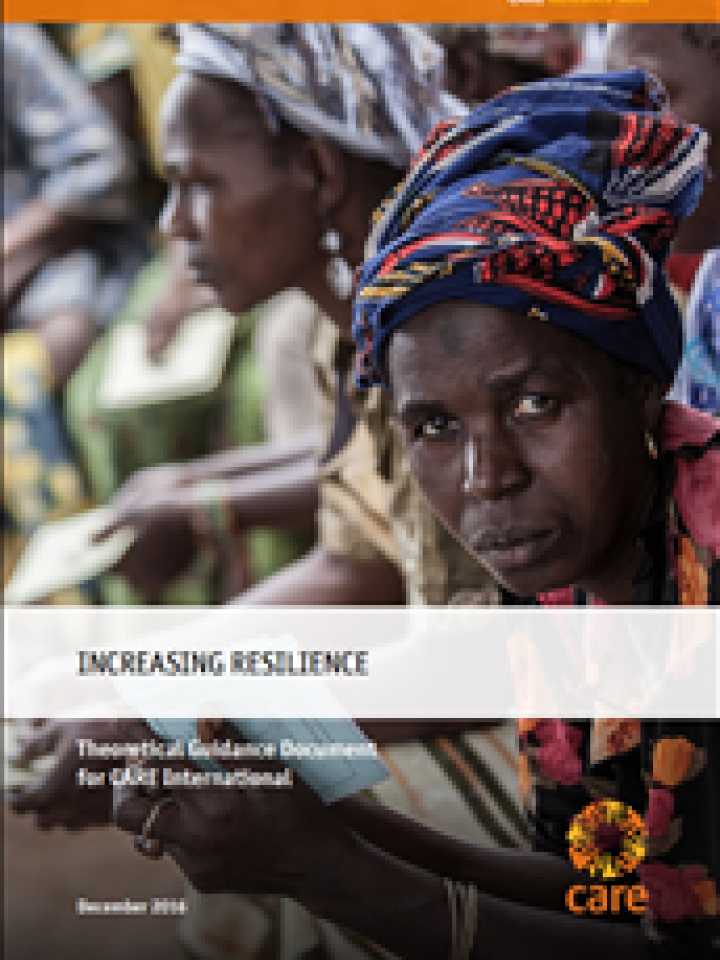Increasing resilience: theoretical guidance document for CARE International
This document provides CARE and partner staff with theoretical direction for integrating resilience into their work. This integration is important in order to effectively address the underlying causes of vulnerability of different groups of people, and improve the social, economic and ecological systems and structures that support them.
The following capacities help people to cope better with shocks, stresses and uncertainty:
- Anticipate risks: foresee and therefore reduce the impact of hazards that are likely to occur and be ready for unexpected events through prevention, preparedness and planning.
- Absorb shocks: accommodate the immediate impact shock and stress have on their lives, wellbeing and livelihoods, by making changes in their usual practices and behaviours using available skills and resources, and by managing adverse conditions.
- Adapt to evolving conditions: adjust their behaviours, practices, lifestyles and livelihood strategies in response to changed circumstances and conditions under multiple, complex and at times changing risks.
- Transform: influence the enabling environment and drivers of risks to create individual and systemic changes on behaviours, local governance and decision-making structures, market economics, and policies and legislation.
These are known respectively as anticipatory, absorptive, adaptive and transformative capacities (‘the 3As and T for resilience’) and can apply at the level of the individual, household, institution and wider social systems
Explore further
